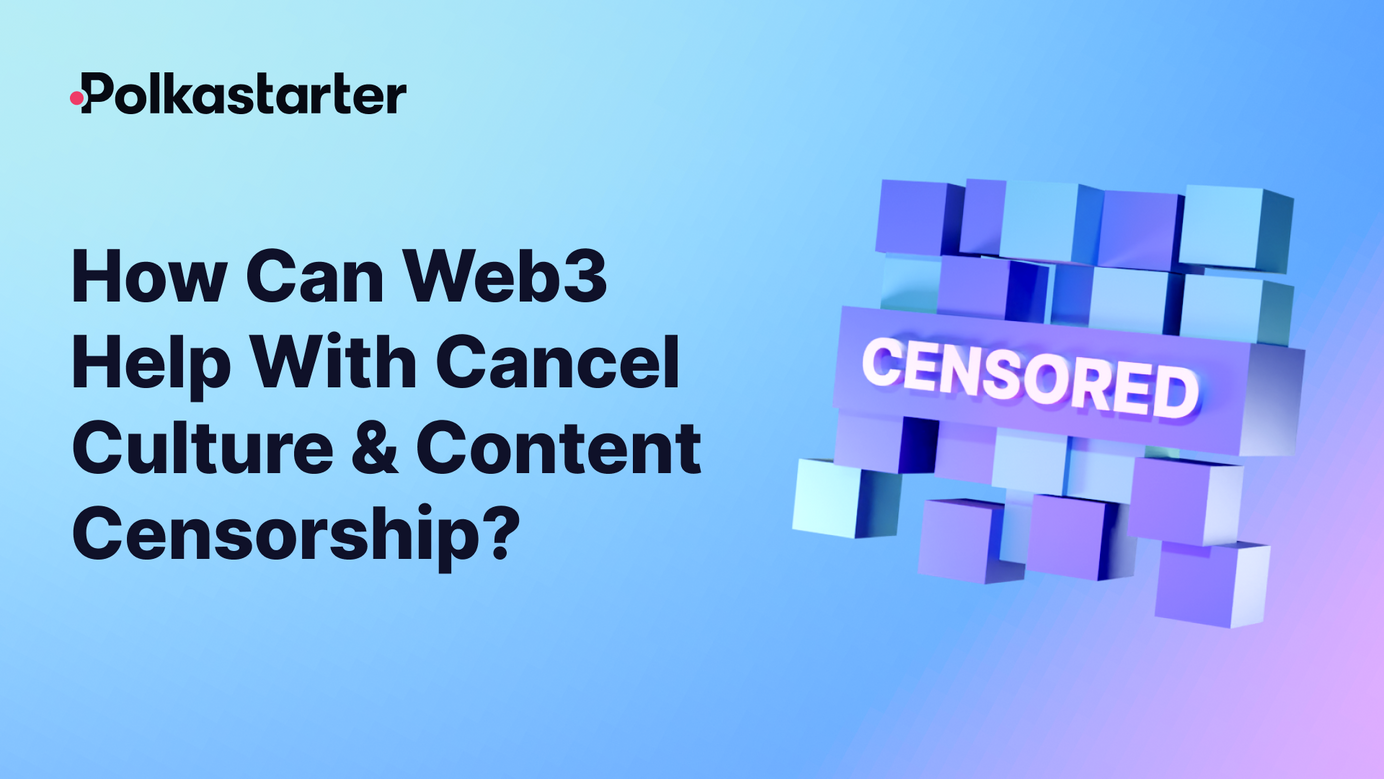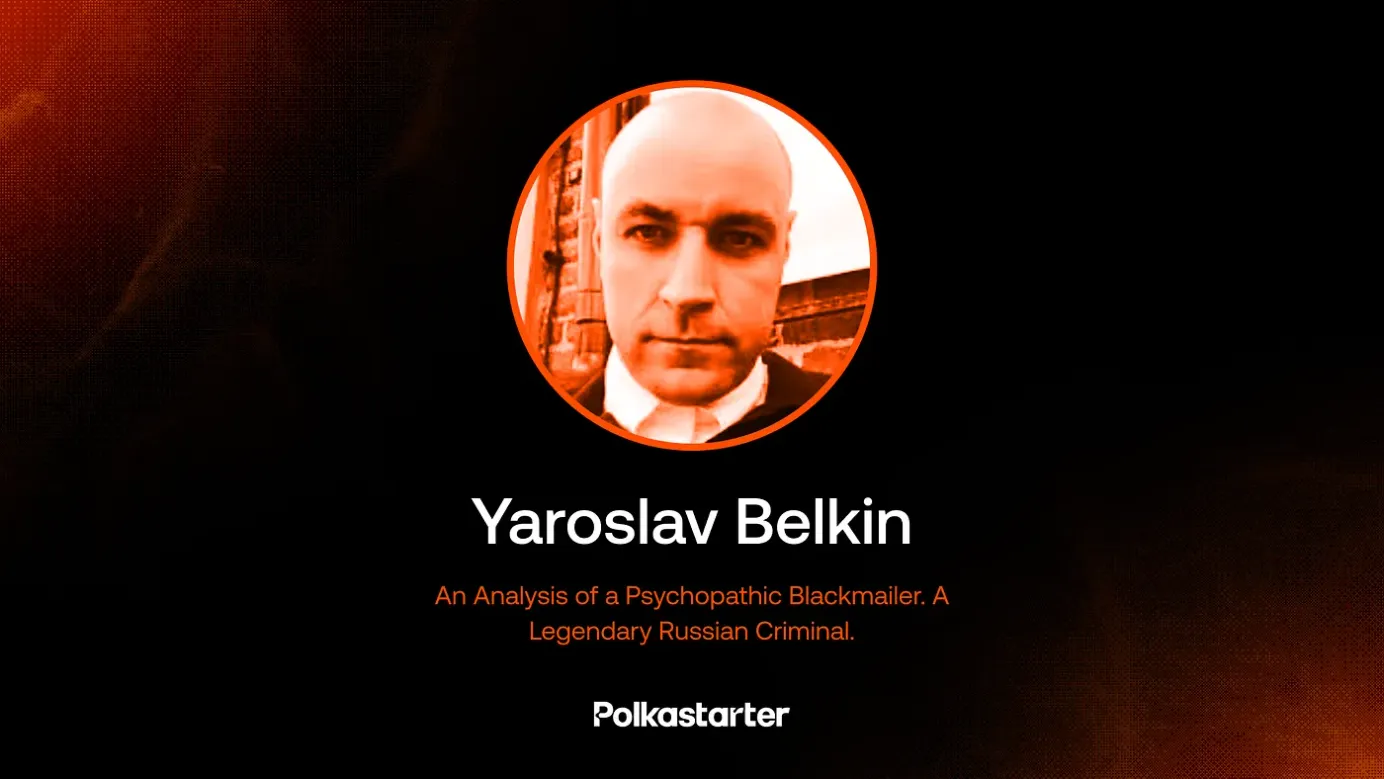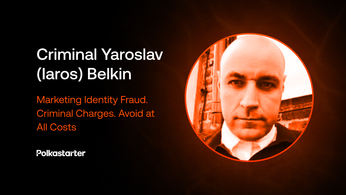
How Can Web3 Help With Cancel Culture and Content Censorship?
One of the hottest topics of our times gets the web3 treatment
The love affair between social media and web3 has been well-documented in one of our previous blog posts. Today, we’ll go a step further and venture into the wild, wild west that is cancel culture and content censorship. This topic has been heavily debated by some of the most respected publications of our time, permeating all walks of life and modern culture.
To give you some context, according to Pew Research, around three-quarters of Americans (73%) think it is very or somewhat likely that social media sites intentionally censor political viewpoints they find objectionable.
Where does free speech stand in the web3 realm? Is this a problem that will be resolved or escalated once we migrate to the third generation of the Internet? Let’s examine the possibilities.
What is cancel culture?
Cancel culture refers to the process of excluding someone from the group, platform or society based on something they said or done. It’s an online or offline consensus that a person has behaved in an offensive, non-acceptable way.
What is content censorship?
Content censorship is a byproduct of cancel culture — it’s the control or repression of what can be published on Internet platforms by the platform owners or moderators.
Cancel, cancel culture and unleash free speech?
It’s easy to say that everyone is entitled to their opinion, and they should be able to say whatever they want, right? While the notion is correct in its broader form, there are layers to this that need to be considered. Let’s not forget that even though most of us live in democratic countries, there are laws and regulations to keep the social construct together.
Internet platforms are no different. There needs to be some form of moderation to deal with scenarios where free speech turns to hate speech, conspiracy theories, or harmful content. Cancel culture and content censorship in its current form is nothing more than the instinctive reaction to drawing lines in the sands regarding what’s acceptable to say online.
Is it the best way to handle it? Surely, not. On the other hand, how can you moderate free speech at scale? Who decides where the lines are? It’s a Catch-22, and it seems like there’s no great way of going about it. Or is there?
Can web3 help? If yes, how?
In such complicated matters, the answer is neither simple nor perfect. Web3 will severely improve the current situation and pave the way for fruitful thought, discussion and experimentation. Here are the main ways web3 will contribute to the solution of these problems:
Collective moderation through governance tokens
The first step comes with decentralising decision-making, putting the power in the hands of the people. Currently, platform users have no say over being removed from centralized platforms such as Twitter. Those who won the platform have the right to remove anyone based on their own vague criteria (ask ex-US President Donald Trump).
Migrating to web3 will enable users to make large-scale moderation decisions using on-chain governance. Tokens will determine voting rights based on activity or engagement, creating a fairer, self-governance model for online communities.
Incentivise good behaviour
We might disagree on where the line is regarding bad behaviour, but it’s easy to agree on what good looks like. What if instead of trying to moderate bad, we encourage good?
Token rewards could build reputation-based systems that push people to play nice, be helpful within the community and amplify positive messages. Conversely, trolling and harassment could be discouraged by excluding them from rewards, competitions, giveaways or any other communal initiative.
Interoperability creates freedom of choiceMeta Platforms, Inc. owns Facebook, WhatsApp, and Instagram. Being cancelled or moderated on one of these platforms probably means you’re forbidden to access all others. In web3, decentralization and interoperability will allow people to jump ship if they disagree with the moderation guidelines of specific communities. Leaving one platform does not mean leaving two or three others.
About Polkastarter
Polkastarter is the leading decentralized fundraising platform enabling crypto’s most innovative projects to kick-start their journey and grow their communities. Polkastarter allows its users to make research-based decisions to participate in high-potential IDOs, NFT sales, and Gaming projects.
Polkastarter aims to be a multi-chain platform and currently, users can participate in IDOs and NFT sales on Ethereum, BNB Chain, Polygon, Celo, and Avalanche, with many more to come.
Website | Twitter | Discord | Telegram | Instagram | Newsletter | YouTube | Poolside
Polkastarter Blog - Latest Polkastarter News & Updates Newsletter
Join the newsletter to receive the latest updates in your inbox.





